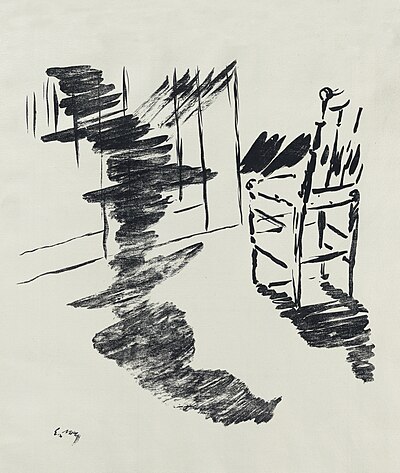"The Raven" is a narrative poem by the American writer Edgar Allan Poe. The poem describes a narrator who is half asleep, poring over ancient books at midnight on a dreary winter night. He hears a tapping sound, and finds a raven at the window, which flies into his room and perches on a bust of Athena. The narrator asks the bird a series of questions, to which the bird replies only "nevermore". Eventually, the narrator falls into despair and ends with his final admission that his soul is trapped beneath the raven's shadow and shall be lifted "nevermore". Originally published in 1845, the poem was widely popular but did not bring Poe much financial success. It has influenced many modern works and is referenced throughout popular culture. This lithographic illustration by Édouard Manet is the last in a set of four plates that depict different stages in "The Raven". Describing this plate, the art historian James H. Rubin wrote: "In the fourth plate, shadow has itself taken on life, becoming the most prominent form. At its bottom it resembles that cast by the bird perched upon the bust, but then in much freer strokes it becomes a dense vapour rising and trailing into oblivion."Illustration credit: Édouard Manet; restored by Adam Cuerden
